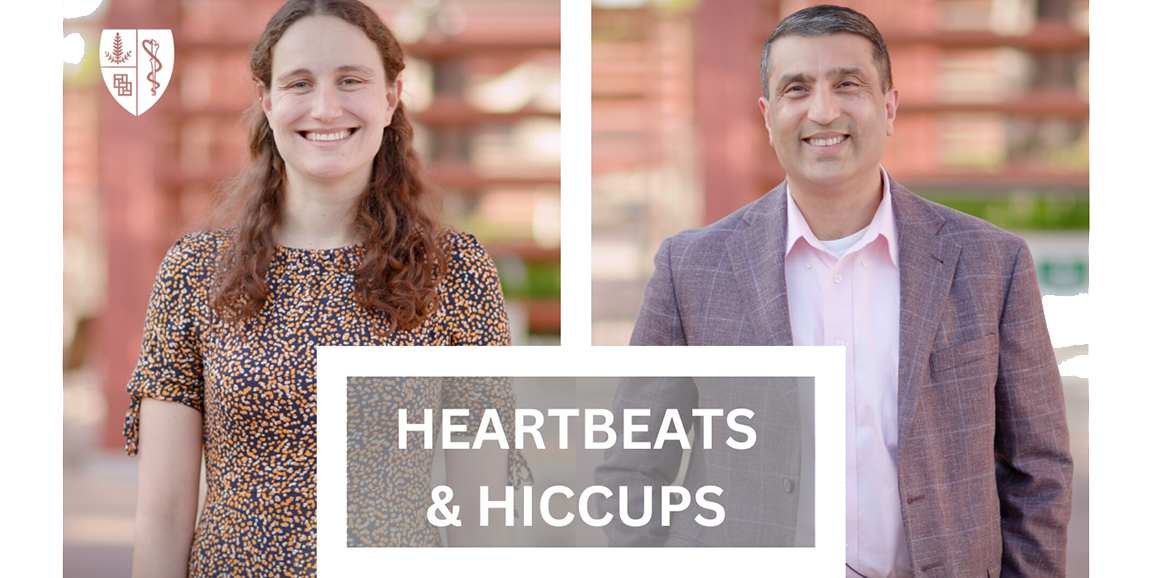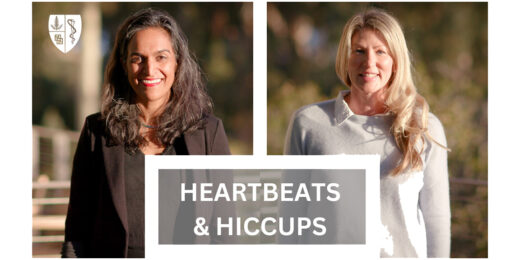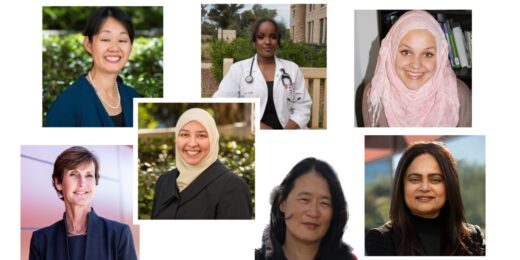The health of the planet and those who inhabit it are inevitably intertwined.
"Living in California, these past couple of years especially, we see the impact of climate change firsthand -- from expansive wildfires to severe flooding," said Ashley Jowell, a fourth-year medical student at the Stanford School of Medicine.
Jowell and Praveen Kalra, MD, clinical associate professor of anesthesiology, perioperative and pain medicine, are developing ways to train medical students and early-career physicians in the health challenges wrought by a changing climate and to apply eco-friendly approaches to treating patients.
Jowell focuses on integrating the care of patients whose health suffers from climate-related events such as wildfires or flooding into the medical school curriculum. Kalra has created a "green rotation" for residents that focuses on sustainability in health care.
The two discuss why they're motivated to make sweeping changes in training the next generation of physicians.
How are you changing education to respond to climate challenges?
Jowell: There's so much to learn in medical school, and this is one more thing that deserves our attention. Creating new dedicated lectures just on climate change and health would not be realistic, nor would it necessarily be the best way to teach. Instead, I and other medical students leading this effort are trying to integrate pearls of climate-health-related wisdom into existing lectures. For example, we had a lecture on asthma, and we worked with our pulmonology professors to incorporate literature related to wildfires and asthma, as well as pollution and asthma. In another example, our team worked with a psychiatry professor to host a local community partner to discuss the psychiatric implications of climate change on local community members.
Kalra: Anesthetic gases are greenhouse gases and can make up to 5% of the carbon footprint of the hospital. Operating rooms services are extremely resource intensive and make major contributions to climate change through procurement, use and disposal of products. Change begins with education, so we created an elective 2 week "green rotation" almost a year ago. Residents are exposed to various strategies on how to provide clean, sustainable anesthesia. We discuss how health care and hospitals contribute to climate change, and we talk about what we can do to practice medicine in a climate conscious way. We touch on everything from how to best dispose of pharmaceutical waste, biohazardous waste, so as not to pollute the environment and water supply, to the impact of single-use devices and how that contributes to waste, to how anesthesiologists can use different gases to decrease the amount of greenhouse gases emitted.
Why are these programs meaningful to you?
Kalra: Our goal is not just to educate residents about the challenges of climate change in the context of health care delivery; we also want to teach how to find solutions. The idea is to not only spur curiosity and interest in sustainability, but to encourage them to get involved in projects that address the health care carbon footprint or reduce waste. This rotation gives them a chance to educate themselves and help advance sustainable health care as they grow their careers.
Jowell: Seeing these new educational curricula become seamlessly integrated into our medical school curriculum feels so representative of the ethos of Stanford Medicine and Stanford University -- how interdisciplinary, adaptive and collaborative we are. It just warms my heart, and I'm so grateful to have gotten to work with such an incredible team of students and faculty. I'm going to Duke University for my residency, and I'm going to miss Stanford a lot, but knowing that this curriculum addition will continue to be a part of the school's education feels like I'm able to give a little back to the place that has given me so much.
Photo by Todd Holland






